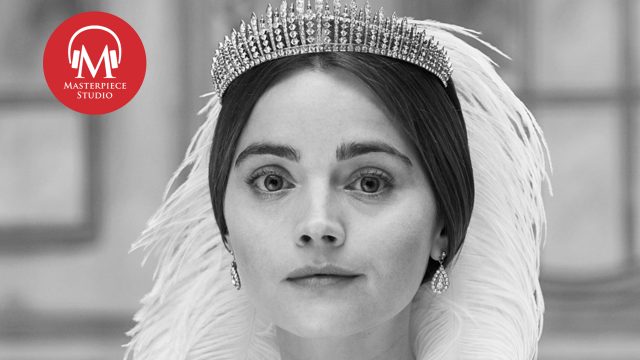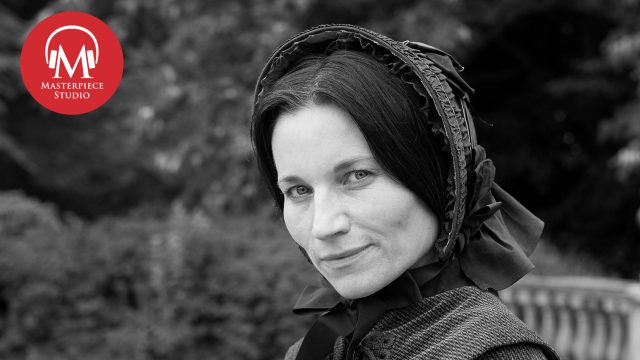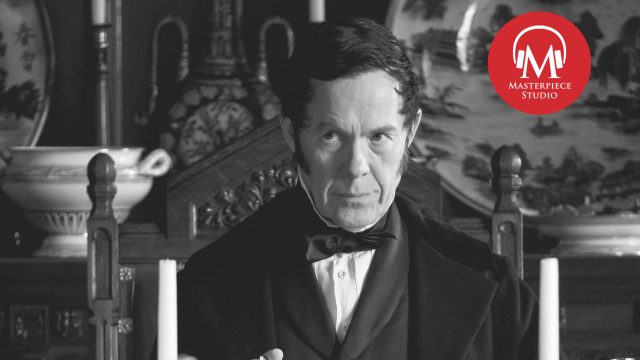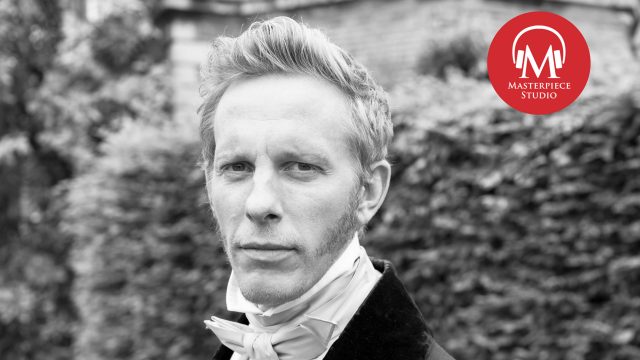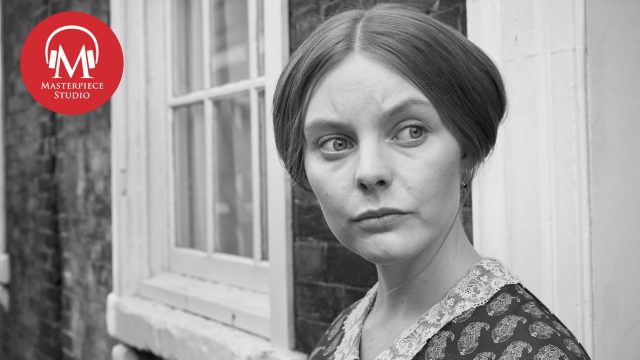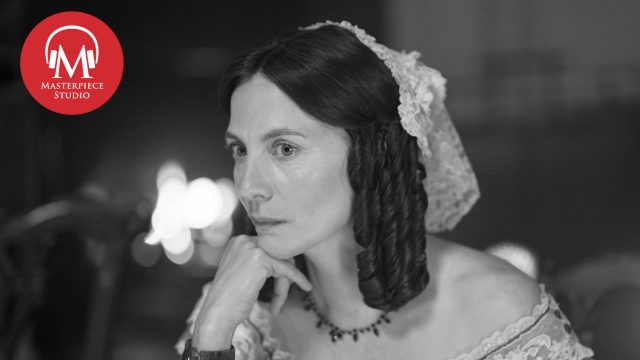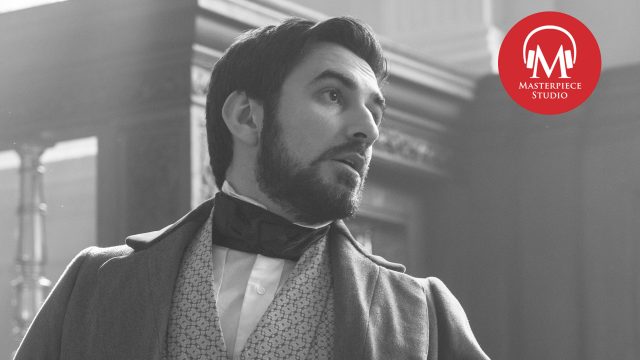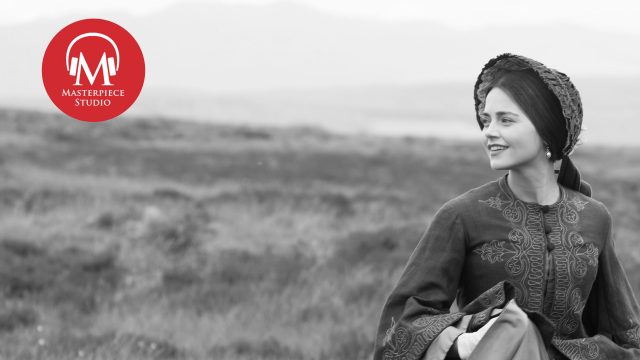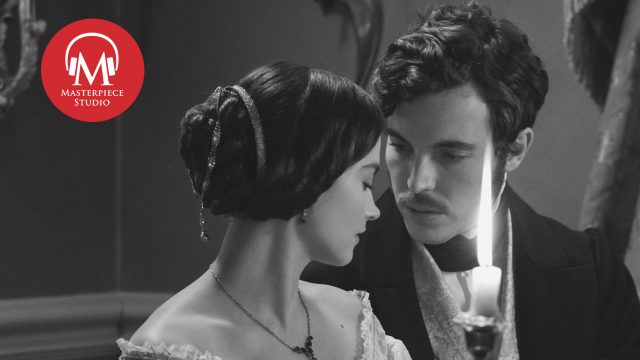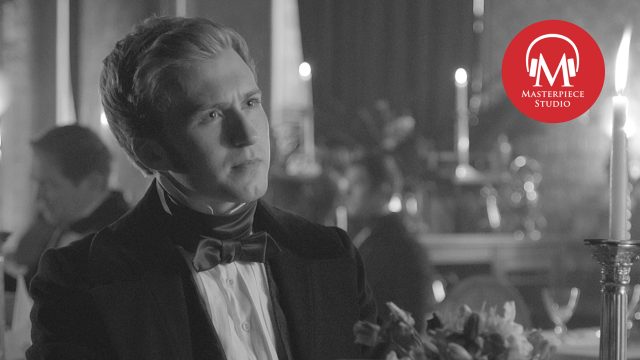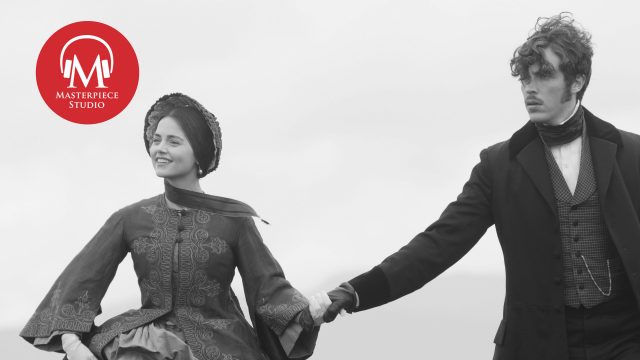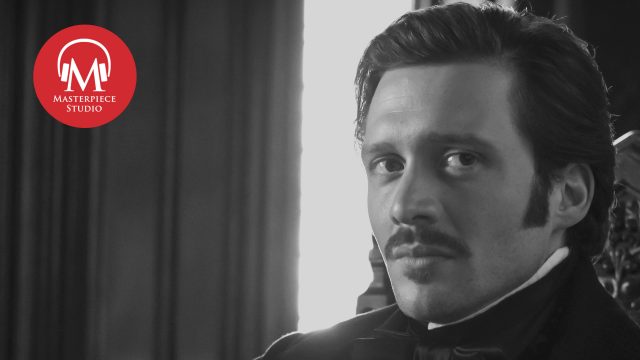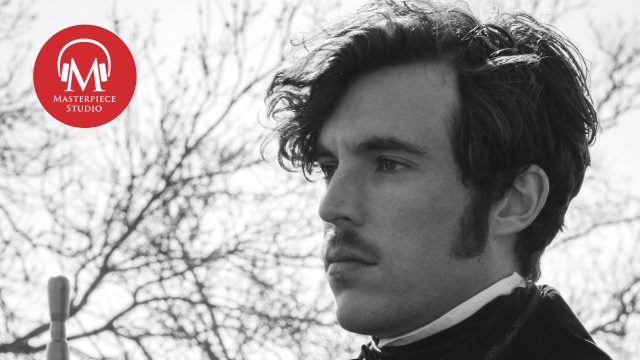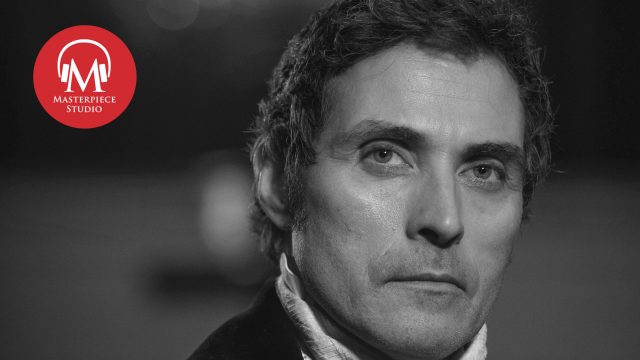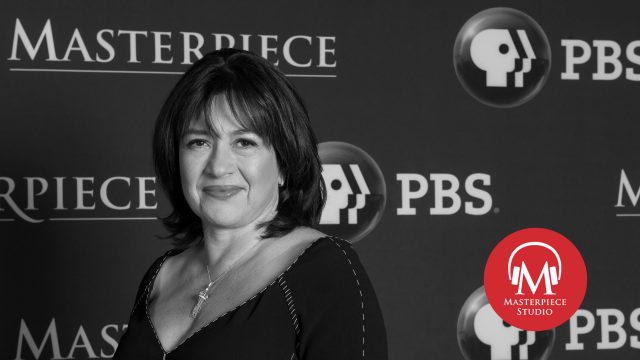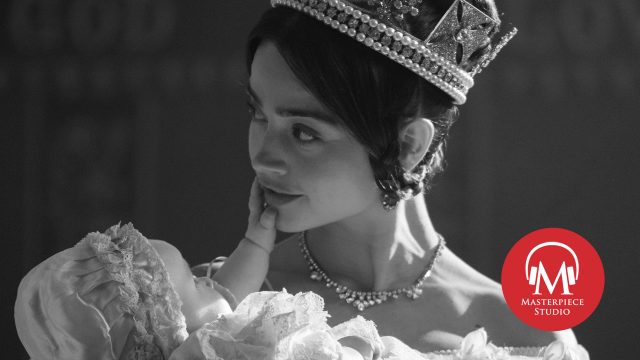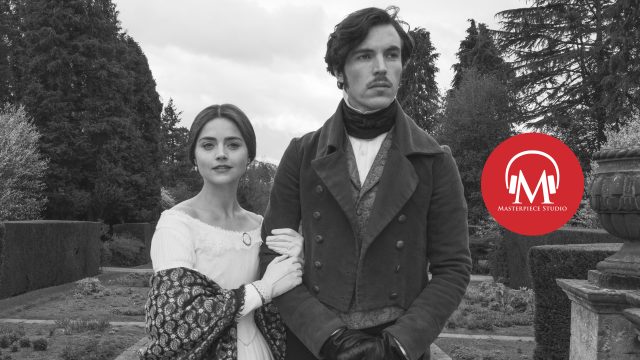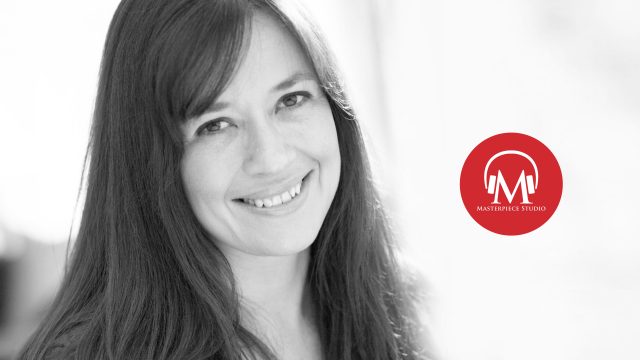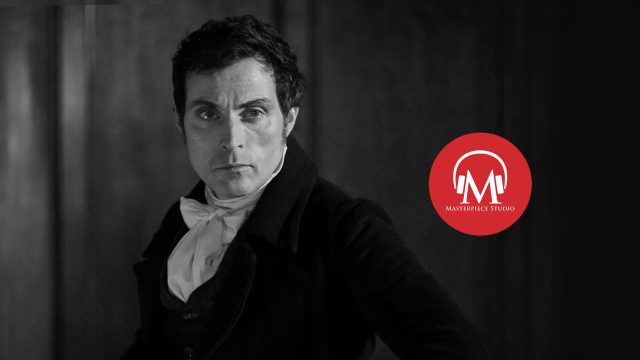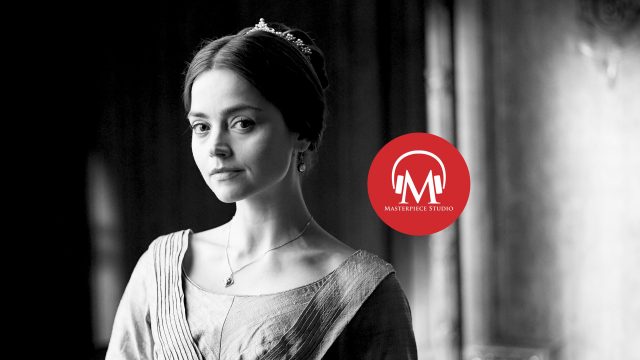Victoria creator, head writer and executive producer Daisy Goodwin already knows the real history of Her Majesty Queen Victoria’s lengthy reign on the throne. But it’s in the intimate perils of the day-to-day where her series finds its true highs and lows. Goodwin joins MASTERPIECE Studio with a special preview of the new third season, and offers some tantalizing hints on the historical drama on the horizon for the young Queen.
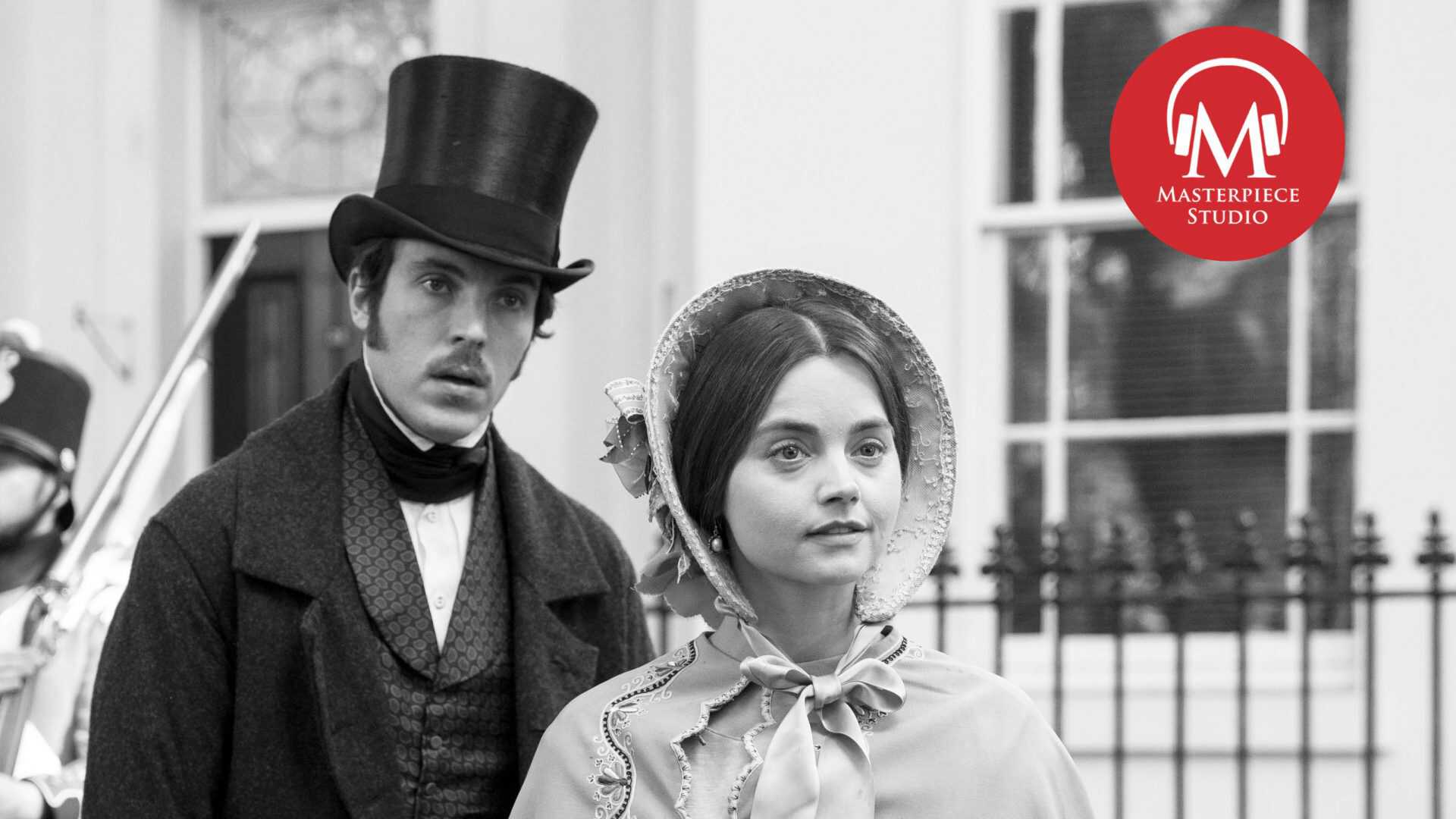

Daisy Goodwin Sketches Out Dramatic Tensions In ‘Victoria,’ Season Three
Released
Related to: Victoria, Season 3
Download and subscribe on: iTunes | Spotify| RadioPublic
Transcript
Jace Lacob: I’m Jace Lacob, and you’re listening to MASTERPIECE Studio.
It’s 1848. Revolution has gripped France with an icy fist, while the streets of London are filled with turmoil and a mysterious veiled visitor arrives silently on the English shore.
CLIP
Victoria: How can the French do that? Get rid of their king in an afternoon.
Albert: They have done it before, Liebes. There are revolutions all across Europe. Vienna. Berlin. Leopold is worried about Belgium.
Jace: The third season of Victoria finds Europe in a state of chaos, but things aren’t much better at Buckingham Palace. In the Royal Household, Queen Victoria is expecting yet another new baby, while her marital tensions with Prince Albert continue to mount.
CLIP
Albert: I venture on one point, he was right. The situation is too unstable, we must leave London.
Victoria: I have told you Albert, I will not run away!
Jace: As she did in the previous two seasons, Victoria’s creator and head writer Daisy Goodwin turned to history to tell the Queen’s story, while amplifying the royal drama and family squabbles for present-day viewers.
Daisy Goodwin: She and Albert have a very rocky road through this series because often they have quite fundamentally different ideas of what monarchy should be.
Jace: Goodwin joins us to kick off the third season of Victoria with a conversation about British chartists, French revolution, and the biting wit of Lord Palmerston.
Jace: And this week we are joined by Victoria creator, head writer and executive producer Daisy Goodwin. Welcome.
Daisy: Hi there.
Jace: The opening of season three finds Louis Philippe disguising himself, and fleeing amid the 1848 revolution. His terror is juxtaposed with Victoria in an enormous diamond and pearl crown walking in a slow procession. Was this juxtaposition — revolution versus pomp and circumstance — intentional?
Daisy: Well yeah! Yeah, yeah, no, I wrote the opening sequence to really highlight the contrast between Louis-Phillippe’s situation and Victoria’s, or rather the ephemeral nature of monarchy because I think what I’m also trying to do is to say that perhaps Victoria’s very sort of solid world isn’t quite as solid as she thinks it is. It’s like the ripples of what happens in France and what happens in fact all over Europe in 1848 is getting all the way to Britain. And she and Albert have a sort of conversation about it, and she says well it’s never going to happen here.
CLIP
Victoria: Oh, thank god for the English Channel.
Albert: I’m not sure that will be enough. Ideas can swim.
Daisy: 1848 is a very big year because it’s the year that Karl Marx publishes the Communist Manifesto, which actually Albert read pretty much the month it came out. And so there’s a lot of unease in Buckingham Palace mostly on Albert’s part — I think Victoria feels that she’s impregnable. But as we see throughout the first episode that that belief is shaken.
Jace: You mentioned Albert’s line, which I think is my favorite in this episode: “Ideas can swim, Victoria.” Is this pitch perfect line something the prince actually said, or a bit of poetry from your pen?
Daisy: I’m afraid it’s bit of poetry from my pen. I’m glad you think it’s poetry. I had a huge fight, everybody kept trying to take it out and I said, “No this is a really good line. Please leave it in.” So I’m glad you liked it, Jace.
Jace: No, I think it’s an amazing line. The Chartists have been a thorn in Victoria’s side since the show’s first season. How does this petition represent a change in strategy for the struggling movement, and what is it that the Chartists actually want?
Daisy: So the Chartists have been bubbling over in and throughout the 1840s, as you say, and I think the point about this is that they’ve become from sort of local outbreaks this has become a national movement. And they’ve been emboldened by what’s happened on the continent, because some of them went over to France and they see that in France people like them have succeeded in overthrowing the government and deposing the king and getting a republic. And generally changing the way the country works, and they’re thinking well why can’t we do this here? And so they organized this enormous rally on the 11th of April and there were going to be groups of Chartists coming down from all over the country, and they were going to march from Kennington Common which is in South London over the bridge to present their petition with all its signatures to the House of Commons. And you know what they wanted with the six points of the charter which was universal suffrage, most of all annual elections, they wanted MPs to be paid, and so forth I mean everything now that we take for granted. But then you know the franchise was really limited. It was a very powerful potent movement and I think there was real hope on their side that they would prevail. And real fear on the side of the government that they would prevail and that would be a revolution in London as there had been in Paris.
Jace: The Duchess of Buccleuch and Wilhelmina are gone replaced by Victoria’s Whig Ladies. Was there an exchange in the script between Victoria and Albert about Wilhelmina and Victoria’s godson that didn’t make it to the screen?
Daisy: Yes, there might have been, yes there was. For reasons of space we had to cut back, but basically Wilhelmina and the infant Padget are stuck at home in the country and the Duchess of Buccleuch has been retired because she’s a Tory. So there’s a whole new set of Ladies. Wilhelmina’s stuck in the country looking after the baby.
Jace: The black-shrouded woman who arrives on the English coast is revealed to be Victoria’s long-lost half-sister Feodora. How does this fictionalized version of Her Serene Highness and her relationship to Victoria differ from the real life Feo?
Daisy: Well I mean — it’s interesting. I think very little is known about Feodora because she was kept rather out of sight. And when I started reading about her, I discovered that actually her story was way more interesting than I had imagined, because she lived in Kensington Palace with the Duchess of Kent and the very young Victoria. So she was nine years older than Victoria and when she was about 16 Feodora caught the eye of George IV, who was King at the time, and he was a widower by that point, and he saw this pretty young thing flitting about Kensington Palace and he thought, ‘Hmm…maybe I could marry her and pop one out, and then the throne wouldn’t go to Victoria.’ And he was sort of toying with this idea and started sort making up to Fedora. But as soon as Victoria’s mother and Conroy got wind of this, they decided that that could never happen, and they packed her off to Germany to marry some German Princeling. Because what they wanted was to have Victoria as Queen Regnant completely under their control, rather than to have Feodora as Queen Consort, potentially messing up their master plan to take over the country. And so that is all true, and it seemed to me that that was a very good starting point for a drama, which is, here you’ve got a sister who came within spitting distance of being Queen, only to have all her hopes dashed in favor of this kind of cursed younger sister, and who never really takes much interest in her and who allows her to moulder away in some grim sort of southern German Duchy with very little money. And so I think that there’s the potential for some fantastic drama there. So I thought, well, I’m going to put Feodora in the mix and see what happens. And there’s no doubt that the two sisters had a very dodgy relationship. So I mean, obviously what transpires in series three is a bit of a sort of a confection on my part but I think it is an extrapolation of the real kind of fault lines between the sisters.
Jace: Now for a beat in this episode it almost seems as though Feo is an impostor.
CLIP
Penge: Your majesty, your…sister is here.
Victoria: Feodora? Oh Feo. Oh it is you! But how…why…
Feodora: Oh Drina, look at you.
Victoria: Feo…
Feodora: I have not stopped for three days…And this is cousin Albert. Oh, I am so happy to meet you, at last.
Jace: Emma says they’d all but forgotten Victoria even had a half-sister. The dog growls at her. What questions should the viewers be asking about Feo at this point?
Daisy: Well I suppose you want to kind of know is what her motivation is and why she’s there. I mean Victoria realizes it’s her sister but I think where her confusion and guilt comes is that she’s obviously conveniently forgotten all about her — you know, out of sight, out of mind. She’s been too busy with Albert and her kingdom and her family and whatever. And I don’t think she asked Feodora to her wedding or if she did, she didn’t send her the money to come. So Feodora has literally been penniless for years, and so you know when she comes she’s wearing this kind of shabby gown, and she’s the kind of poor relation. And that’s why everybody is very surprised to see her. They can’t believe that the Queen has a sister who looks like that.
Jace: I mean even Bertie points out the holes in her skirt.
Daisy: Yes exactly.
Jace: Which I love.
Daisy: I mean she’s coming from a sort of different place. You can be royal and impoverished and I think that’s what Victoria’s forgotten. She can’t admit to feeling guilty so she sort of pretends it hasn’t happened.
Jace: The Tony- and Olivier-nominated Kate Fleetwood, who plays Feodora, is one of many new faces this season. What does Fleetwood bring to the role of the mysterious Feo?
Daisy: Well she’s just got such a fantastic face. I wrote the role really with her in mind, so I was very pleased when she accepted the part. I think she brings a feline coming to the part, which I love, and she’s got great timing, and you know that when she’s on the screen, she’s a character you can read in lots of different ways and I think people will notice she’s extremely affable to Albert and you know you can see little sort of spiky moments with Victoria. And I’ve had such fun writing her and Kate’s really sort of brought out all the kind of villainous qualities I would say. She’s not a pure villain. I think she’s a tragic character but I’ve really enjoyed putting her on the page.
Jace: I could not dream of a better-cast Lord Palmerston than Laurence Fox, who walks away with some of the best lines of the season.
CLIP
Albert: You forget, Lord Palmerston, that you are talking about our family and friends.
Russell: I’m sure that in the future the Foreign Secretary will send copies of his correspondence here first.
Victoria: You seem very sure of what the people think, Lord Palmerston.
Palmerston: I make it my business, ma’am. The British public is like a beautiful woman, and I wish to glory in her smiles.
Jace: How much fun was it writing Palmerston’s dialogue this year?
Daisy: It’s been heaven, heaven. I mean of course, what more could a girl want? A womanizing Foreign Secretary who doesn’t give a damn about anything. I love that, and he sort of undermines the kind of stuffiness and pomposity of the court and he’s the absolute polar opposite to Albert which I think is great because you both sort of cheer for Palmerston but you also by the end of the series begin to realize that Albert, too, has his virtues. So there’s kind of a really interesting interplay between the two of them and that’s been enormous fun to do.
Jace: Penge goes so far as to warn the servants downstairs to stay out of sight, because no woman is safe when Palmerston is around. Was he as much of a Lothario in real life as he is here?
Daisy: Oh absolutely, yes. Lord Palmerston was a famous as we would say here, shagger. But he was also extremely devoted to his wife, so you know, make of that what you will.
Jace: And before this next question, a brief word from our sponsors…
Jace: The casting of comedian John Sessions to play Prime Minister John Russell is a coup. Can you talk about his casting and the character of Russell here?
Daisy: Well I just, I was thrilled when John said he would do it, because he’s such a fabulous actor and I thought the sort of combination of him and Laurence as Palmerston and Russell was going to work brilliantly as indeed it does, because Russell loathes Palmerston but is kind of locked into a sort of uneasy partnership with him, because without Palmerston’s support, his government will fall. And so he’s just in agony for the entire series and he’s got this awful bumptious man at one point he says, “I wish you’d call me Prime Minister,” which is kind of my sort of anguished plea for a little respect.
Jace: How much of the British public appreciation of Palmerston, or or Pam as he’s called by the public, was down to his reputation of being a man of the people the sort of bloke who likes to have a flutter and relishes a prizefight?
Daisy: He was somebody who was very good at meeting his public. He wasn’t a sort of Olympian aristocrat. He would go to prize fights, he would do things that were in the public realm. But also he was a fantastic populist. He was a man who would go on about Britain being the greatest nation on earth and he would be incredibly sort of bellicose — although he never actually wanted to have wars, he would pretend that he did. There was no doubt where he stood, and people really responded to that, and he was just a very colorful character. He was very good at getting media outlets on his side. So he was a modern politician in that sense, a very modern politician and he knew how to play the media and he knew how to get the public on his side.
Jace: Bertie refuses to even try on Victoria’s crown saying crowns are for girls. Was Bertie this opposed to the idea that he might rule someday in real life?
Daisy: Bertie really had no idea that he was going to be King. Because he grew up in this world where his mother was Queen, and Vicky was clearly better at everything than him, and so he just assumed that Vicky would be Queen. It didn’t occur to him that he was the one who was going to be King. And this really happened. And one day Victoria realizes I’m gonna have to kind of tell him that actually, you know this is going to be yours one day because it didn’t occur to them he didn’t know. I thought that was a glorious moment. And you know, as he says, you know, in Britain we have Queens because that’s all he knows.
Jace: Skerrett and Francatelli are now engaged. And the very ambitious Francatelli is already making plans for their new life together. What lies ahead for these two and is their story connected to the struggle of the working class here?
Daisy: Yes I suppose I wanted to show that they were upwardly mobile. That Francatelli, which indeed he was, wants more than being a servant, even a palace servant. And I suppose that Skerrett feels very divided about leaving the palace because although she loves Francatelli and she wants this new life, she also feels that her status and everything comes from the Queen and also she feels very grateful to the Queen because the Queen has basically given her this new life and has forgiven her sins etc, etc, etc. So it’s a it’s an interesting story that, there’s conflict and leaving the palace behind is going to be a huge moment for Skerrett.
Jace: And is this a crisis of identity for her?
Daisy: I think so. She’s a self-made character and I suppose you have to remember that once she gets married she becomes her husband’s property, and although she loves him and you know there’s no reason not to, she’s giving up her independence and also she’s turning her back on this woman who she’s become incredibly close to over the last 10 years. And they have an unspoken thing going on between them, which she will miss and she dreads telling the Queen what’s happened.
Jace: I’ve always loved Lady Emma Portman but never so much as when she steps in to save Sophie when Monmouth’s so awful to her about the brooch.
CLIP
Emma: Sophie. The Queen asked me if you would look over the place cards. She says you are so good at these things. Just so you know, there is no correct place for you to wear the brooch from the Queen.
Sophie: Did you know that my father was once a shopkeeper?
Emma: Really? Mine was a parson. But I try not to hold it against him.
Jace: Do you adore Emma as much as I do?
Daisy: Oh, we love Emma. She’s so glorious and so beautifully played by Anna Wilson-Jones, she’s just a gift. She’s such a good actress, in everything she does. She doesn’t get much screen time, but she makes every moment count. So she’s one of those characters I love writing for.
Jace: Sophie, the daughter of a grocer, as her husband reminds her, seems trapped in a pretty unfortunate position. Her marriage to the Duke of Monmouth seems not only loveless but just plain awful. Is the couple based on real-life figures?
Daisy: Yes I mean it’s a sort of composite but I suppose it’s pretty accurate in that there were a lot of marriages at about that time when aristocrats were beginning to feel the wind of change that they couldn’t rely on their vast estates to keep them in the style to which they’ve become accustomed. Income tax being been introduced. There was this new mercantile class that have lots of money but no status, so there was a kind of tradeoff between money and status. So you’ll have someone like Sophie who’s you know I suppose what we would call middle class but extremely wealthy who is married off and becomes a duchess and that’s a fantastic transaction for the Duke, cause he gets a load of money, and for Sophie’s family, because they can talk about their daughter, the Duchess. But it’s pretty hard lines on Sophie because she and the Duke have nothing in common.
Jace: Joseph is a footman newly arrived at the palace after service at Chatsworth House, who is already running afoul of Penge. What can you reveal about his character and where this story might be going?
Daisy: Well I thought Joseph is a is an upwardly-mobile footman. And of course, the point about a footman was that they had to be tall and handsome and they were sort of eye candy. They were the icons of the stately homes and they were always sort of very handsome young men, and I was trying to imply that Joseph had left Chatsworth because he’d been altogether too friendly with the Duchess and had been paid off with a very handsome reference. And now he’s at the Palace, and so I suppose he’s using his — his charms to better himself in life. So that’s certainly how he starts out.
Jace: Fact or fiction. When Louis Philippe said, ‘If I were not a Frenchman I should wish to be an Englishman,’ did Palmerston coolly reply, ‘If I were not an Englishman I should wish to be an Englishman.’
Daisy: That is actually fact. Yes, it was such a great exchange, I had to work that in. I thought it was fabulous.
Jace: Considering the incident involving Louis Phillipe and the Spanish Queen last season, why does Victoria opt to take in Louis Philippe? Does family loyalty trump diplomatic betrayal?
Daisy: Yes and also I think, you know, he’s a king, and actually he’s a king down on his luck. He’s lost his throne. And even though he really betrayed them in the last series. You know, the fact that he’s a king means that they have to take him in, you know. She owes loyalty to another crowned head. And that’s why she takes him in.
Jace: Fact or fiction: did a mob march on the palace and throw a brick through one of the windows?
Daisy: Yes they did. They did throw a brick. A mob did march through London and did throw a brick wrapped in a French flag through the Buckingham Palace windows, because they were so angry about Louis Philippe staying at the palace because they felt that Victoria shouldn’t be harboring a tyrant.
Jace: And did Victoria’s water break as a result of this, or was that a dramatic device?
Daisy: I’m afraid that there’s a bit of dramatic license use there.
Jace: It works effectively. Looking at the third season as a whole, what are the underlying themes you’re exploring in the broadest of strokes?
Daisy: Well I guess it’s about what it means to be a queen. At the beginning of the series the one thing that she’s come to rely on is the love of her people and then as the show begins, she’s sort of confident in that. But as you know as the series progressed, she begins to doubt that, she begins to realise that actually she’s going to have to work for that love, and that she talks about it being the base note that anchored her life and now there’s all this disturbance going on and she suddenly realizes well, if she’s not Queen, what is she? And Albert says well, you’re my wife and we’ve got all these children, but that’s not enough for Victoria, and that’s a real moment for her, it’s a real moment of sort of self-doubt. And she and Albert have a very rocky road through this series, because often they have quite fundamentally different ideas of what monarchy should be. You know she wants to be popular, she wants to be loved, she wants to go out in her carriage and be cheered, and she’ll do whatever it takes to win their love whereas Albert feels that the duty of monarchy is to lead from the front, and sometimes to risk being unpopular to do the right thing. So his feeling is you should give the people what they need, not what they want. And this becomes a real tension between them and he finds Victoria’s pathological need for attention he finds that very irritating and she can’t understand why he is so blind to the dangers of being unpopular. So there is this real kind of push and pull between the two of them, plus there’s all the tensions of childbearing and pregnancy and there’s always the feeling that every time Victoria has a child her mind becomes progressively more unhinged. And of course always tensions are being stoked by the presence of Feodora who is doing everything in her power to drive Victoria and Albert apart.
Jace: We can’t wait to see what happens. Daisy Goodwin, thank you so very much.
Daisy: My pleasure.
Jace: Goodwin will return all season for our Victoria: Fact and Fiction segments at the end of every episode of the podcast. Watch your feeds for her historical insight behind the series.
And next week on the podcast, don’t miss actor Ferdinand Kingsley, the man behind the suave royal chef, Charles Francatelli.
Ferdinand Kingsley: I mean I think he was…he was a bit of a naughty boy before…The difference is not only that he fancies Skerrett and wants to…be around her beauty. It’s that he’s he really thinks he’s found an equal.
Jace: That’s Sunday, January 20th in your podcast feeds.
MASTERPIECE Studio is hosted by me, Jace Lacob and produced by Nick Andersen. Elisheba Ittoop is our editor. Susanne Simpson is our executive producer. The executive producer of MASTERPIECE is Rebecca Eaton.
Victoria Podcasts 20 More Podcasts
MASTERPIECE Newsletter
Sign up to get the latest news on your favorite dramas and mysteries, as well as exclusive content, video, sweepstakes and more.











